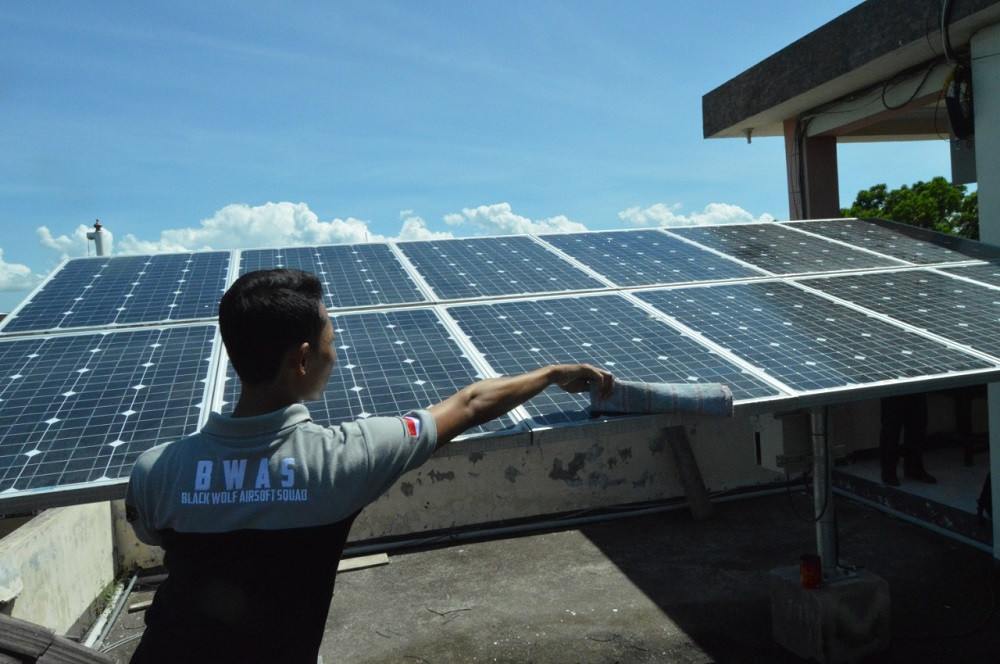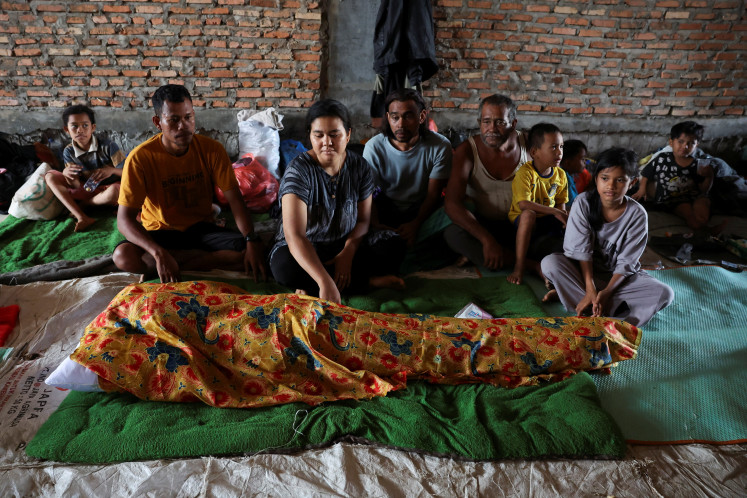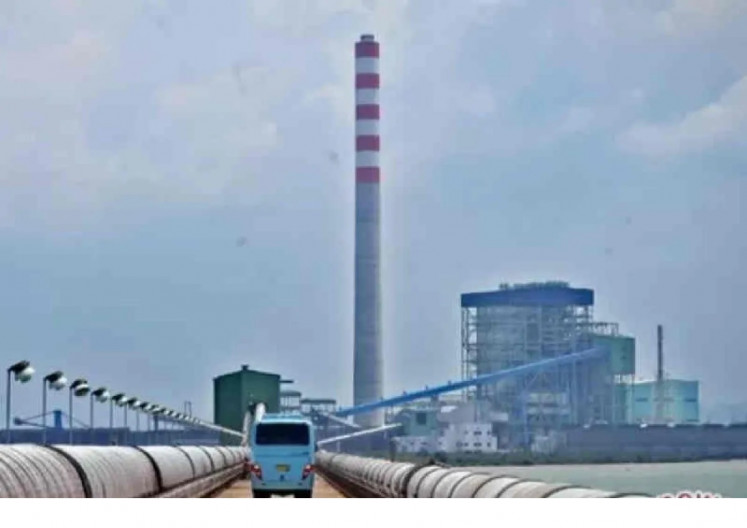Popular Reads
Top Results
Can't find what you're looking for?
View all search resultsPopular Reads
Top Results
Can't find what you're looking for?
View all search resultsRooftop solar panels, are they actually worth it?
The rooftop photovoltaic (PV) solar panel ecosystem in Indonesia has plenty of room for improvement, experts say, but the shiny plates could already be a worthwhile investment for individuals as the government is pushing for PV utilization.
Change text size
Gift Premium Articles
to Anyone
T
here is a great deal of room for improvement in the rooftop photovoltaic (PV) solar panel ecosystem in Indonesia, experts say, but the shiny plates could already be a worthwhile investment for individuals as the government pushes for PV utilization.
The Energy and Mineral Resources Ministry is drafting a bill on rooftop PV systems connected to power grids as it seeks to engage homeowners in its renewable-energy plans.
Indonesia Solar Energy Association (AESI) executive director Fabby Tumiwa told The Jakarta Post on Wednesday that the proposed legislation included a revision of energy ministry Regulation No. 49/2018 concerning the use of rooftop solar power systems.
The revision requires state-owned electricity company PLN to deduct 100 percent of the electricity produced by a solar panel from a user’s bills, as opposed to 65 percent at present. While PLN will not pay users for excess power they feed into the grid, the increased potential savings on their personal electricity bills can help PV system owners recoup their investment more quickly.
“[The new regulation] is expected to help homeowners install rooftop solar panels going forward,” said Fabby, who is also the executive director of the Institute for Essential Services Reform (IESR).
A typical rooftop PV panel system may cost between Rp 14 million (US$967) and Rp 25 million, according to the ministry document. The price varies depending on several aspects, including the type of components used and the company customers engage with for the service.
Read also: New solar panel regulation discourages public use
The new regulation addresses several aspects and aims to increase the number of rooftop solar panel users by increasing the economic value of personal PV systems. The ministry expects it to help Indonesia achieve its goal of meeting 23 percent of national energy needs from renewable sources by 2025.
However, supportive financing options, including easy-to-obtain credit, low interest rates and fixed installments, remain crucial to accommodating residential solar panel consumers, Fabby added.
“It is important to help households make the [relatively] high up-front payment,” he said.
As of June this year, he noted, solar panel installation fees in Indonesia ranged from Rp 13 million to Rp 18 million, while the investment costs for solar panel installation had decreased by 90 percent over the last decade.
State-owned banks have introduced several special financing schemes for rooftop PV panels to help the government achieve its renewable energy targets.
Bank Mandiri, Bank Rakyat Indonesia (BRI) and Bank Negara Indonesia (BNI), which are among the country’s five biggest banks, launched their respective financing schemes in the first half of this year. The loans are intended to help investors meet the up-front costs of installing solar panels.
Read also: State banks offer solar panel loans to boost adoption
PT Len Industri business strategy director Linus Andor Mulana Sijabat said solar panel technology had been advancing and was now easy to use. Widely used crystalline technology solar panel systems, according to him, have a high efficiency rate.
“[Rooftop solar panels] are [becoming more] economical,” Linus said in a statement on Aug. 15.
Meanwhile, Indonesian Renewable Energy Society (METI) executive director Paul Butarbutar said that, in general, installing solar panels was beneficial for homeowners, as it would reduce their electricity bills.
Whether a rooftop solar panel system was a worthwhile investment in a specific case, however, depended on the consumer’s perspective, he added.
“The break-even point [would be achieved] within around nine years,” Paul told the Post via text message on Wednesday.
In May this year, 3,781 rooftop solar panel users were registered with the ministry. While that figure pales by comparison with other countries, it does represent significant growth, given that it is up from just 592 three years earlier.
The energy ministry aims for 70 megawatts of peak power (MWp) to come from rooftop solar panels by the end of this year.
In 2020, Australia issued more than 362,000 certificates for rooftop PV solar panel installations, according to the Commonwealth Scientific and Industrial Research Organization (CSIRO).










